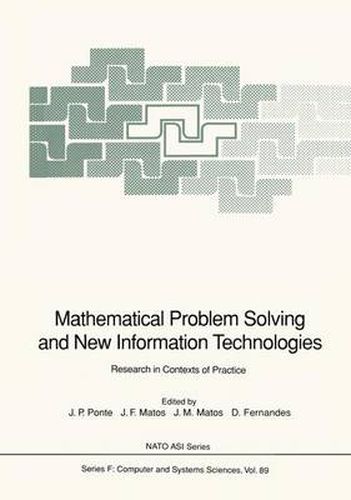Readings Newsletter
Become a Readings Member to make your shopping experience even easier.
Sign in or sign up for free!
You’re not far away from qualifying for FREE standard shipping within Australia
You’ve qualified for FREE standard shipping within Australia
The cart is loading…






This title is printed to order. This book may have been self-published. If so, we cannot guarantee the quality of the content. In the main most books will have gone through the editing process however some may not. We therefore suggest that you be aware of this before ordering this book. If in doubt check either the author or publisher’s details as we are unable to accept any returns unless they are faulty. Please contact us if you have any questions.
A strong and fluent competency in mathematics is a necessary condition for scientific, technological and economic progress. However, it is widely recognized that problem solving, reasoning, and thinking processes are critical areas in which students’ performance lags far behind what should be expected and desired. Mathematics is indeed an important subject, but is also important to be able to use it in extra-mathematical contexts. Thinking strictly in terms of mathematics or thinking in terms of its relations with the real world involve quite different processes and issues. This book includes the revised papers presented at the NATO ARW Information Technology and Mathematical Problem Solving Research , held in April 1991, in Viana do Castelo, Portugal, which focused on the implications of computerized learning environments and cognitive psychology research for these mathematical activities. In recent years, several committees, professional associations, and distinguished individuals throughout the world have put forward proposals to renew mathematics curricula, all emphasizing the importance of problem solving. In order to be successful, these reforming intentions require a theory-driven research base. But mathematics problem solving may be considered a chaotic field in which progress has been quite slow.
$9.00 standard shipping within Australia
FREE standard shipping within Australia for orders over $100.00
Express & International shipping calculated at checkout
This title is printed to order. This book may have been self-published. If so, we cannot guarantee the quality of the content. In the main most books will have gone through the editing process however some may not. We therefore suggest that you be aware of this before ordering this book. If in doubt check either the author or publisher’s details as we are unable to accept any returns unless they are faulty. Please contact us if you have any questions.
A strong and fluent competency in mathematics is a necessary condition for scientific, technological and economic progress. However, it is widely recognized that problem solving, reasoning, and thinking processes are critical areas in which students’ performance lags far behind what should be expected and desired. Mathematics is indeed an important subject, but is also important to be able to use it in extra-mathematical contexts. Thinking strictly in terms of mathematics or thinking in terms of its relations with the real world involve quite different processes and issues. This book includes the revised papers presented at the NATO ARW Information Technology and Mathematical Problem Solving Research , held in April 1991, in Viana do Castelo, Portugal, which focused on the implications of computerized learning environments and cognitive psychology research for these mathematical activities. In recent years, several committees, professional associations, and distinguished individuals throughout the world have put forward proposals to renew mathematics curricula, all emphasizing the importance of problem solving. In order to be successful, these reforming intentions require a theory-driven research base. But mathematics problem solving may be considered a chaotic field in which progress has been quite slow.